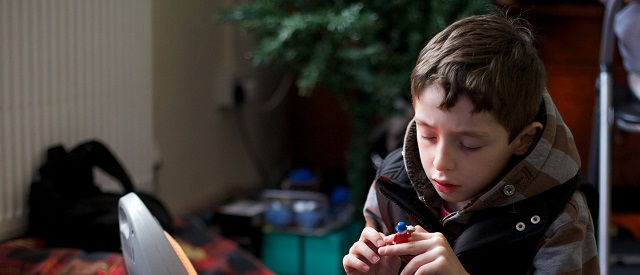By Julia Pastor | This is incredible, but true. There are children in the most developed countries having difficulties to access food and medicines.
While British prime minister David Cameron is trying to do his best to save the City of London, over three and a half million children live under the threshold of poverty in the United Kingdom, which is the seventh wealthiest nation worldwide.
In Spain, whose government is thinking about whether it asks for a financial rescue or not, the situation is not better. Child poverty ranges between 24 and 26 per cent.
In both countries, household expenses of those affected are not enough to give the youngest an adequate breakfast. Those figures come from the NGO Save the Children.
The British subsidiary of the NGO has approached child poverty for the first time by revealing these information and launching a campaign called “It shouldn’t happen here”. This initiative has opened simultaneously a wide national debate which calls into question not only the fact that child poverty exists in the United Kingdom, but also that charity may become excessively politicised.
A fair number of the country’s NGOs have supported the campaign, on the grounds that the situation is getting worse. According to the Institute for Fiscal Studies’ estimations, a very respected think-tank, about 400.000 extra British children will be pushed into poverty in year 2015, and further 400.000 will do so by 2020.
The Spanish division of Save the Children believes that, given the current circumstances and in comparison to the United Kingdom’s situation, that campaign could occur in Spain.
As Yolanda Román, responsible for the NGO’s Incident Policy department, noted recently, “child poverty in Spain is already affecting the youngest’s food supply, as well as their learning achievement.” The organisation has found “nutritional deficiencies.” In last June, “there were children whose only food was the one that ate in the school canteen,” Román has warned.
On the other hand, the access to medicines after the health system reform is also becoming difficult. The prescriptions for some medicines have been removed and not few families find almost impossible to pay for them.
At the moment, the NGO is focusing on political action, because “our work cannot substitute the state’s in any case,” Román says.
Hopefully, this emerging challenge will not conceal, neither interfere the real challenge: 900 million people starve to death worldwide and 1.400 million live on less than €1.25 a day, while ten per cent of big consumers are expected to spend the planet resources.






Be the first to comment on "Indeed, poor rich children"